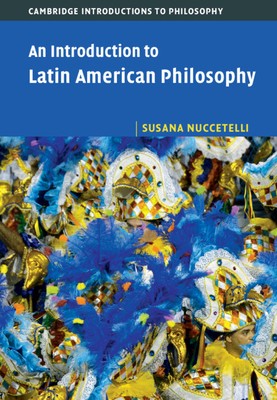
- We will send in 10–14 business days.
- Author: Susana Nuccetelli
- Publisher: Cambridge University Press
- ISBN-10: 1107067642
- ISBN-13: 9781107067646
- Format: 19.6 x 24.9 x 2 cm, hardcover
- Language: English
- SAVE -10% with code: EXTRA
Reviews
Description
Latin American philosophy is best understood as a type of applied philosophy devoted to issues related to the culture and politics of Latin America. This introduction provides a comprehensive overview of its central topics. It explores not only the unique insights offered by Latin American thinkers into the traditional pre-established fields of Western philosophy, but also the many 'isms' developed as a direct result of Latin American thought. Many concern matters of practical ethics and social and political philosophy, such as Lascasianism, Arielism, BolÃvarism, modest and immodest feminisms, republicanism, positivism, Marxism, and liberationism. But there are also meta-philosophical 'isms' such as originalism and perspectivism. Together with clear and accessible discussions of the major issues and arguments, the book offers helpful summaries, suggestions for further reading, and a glossary of terms. It will be valuable for all readers wanting to explore the richness and diversity of Latin American philosophy.
EXTRA 10 % discount with code: EXTRA
The promotion ends in 18d.08:42:13
The discount code is valid when purchasing from 10 €. Discounts do not stack.
- Author: Susana Nuccetelli
- Publisher: Cambridge University Press
- ISBN-10: 1107067642
- ISBN-13: 9781107067646
- Format: 19.6 x 24.9 x 2 cm, hardcover
- Language: English English
Latin American philosophy is best understood as a type of applied philosophy devoted to issues related to the culture and politics of Latin America. This introduction provides a comprehensive overview of its central topics. It explores not only the unique insights offered by Latin American thinkers into the traditional pre-established fields of Western philosophy, but also the many 'isms' developed as a direct result of Latin American thought. Many concern matters of practical ethics and social and political philosophy, such as Lascasianism, Arielism, BolÃvarism, modest and immodest feminisms, republicanism, positivism, Marxism, and liberationism. But there are also meta-philosophical 'isms' such as originalism and perspectivism. Together with clear and accessible discussions of the major issues and arguments, the book offers helpful summaries, suggestions for further reading, and a glossary of terms. It will be valuable for all readers wanting to explore the richness and diversity of Latin American philosophy.


Reviews